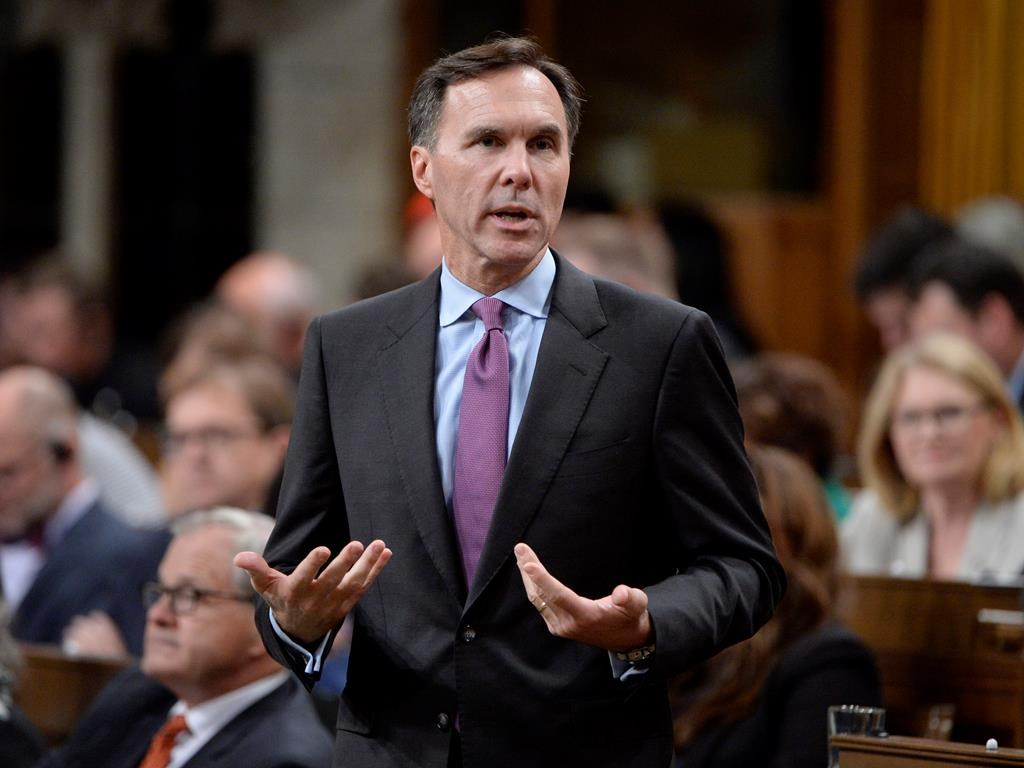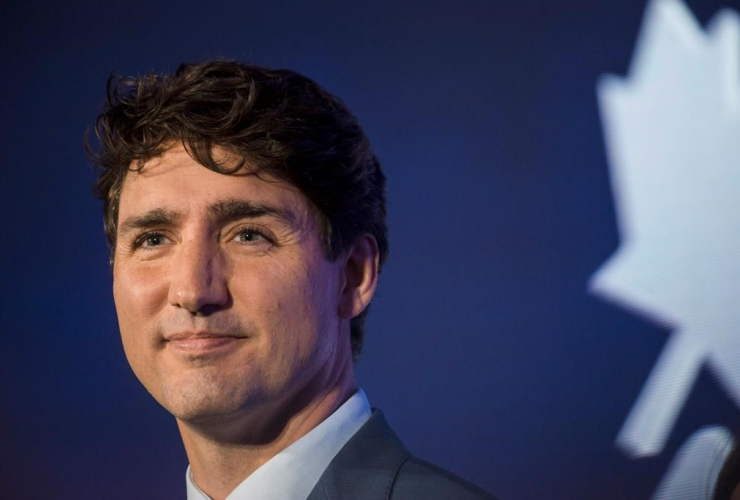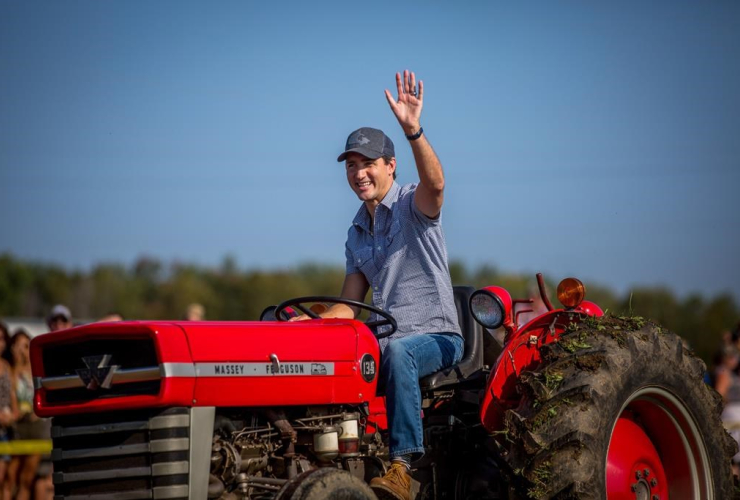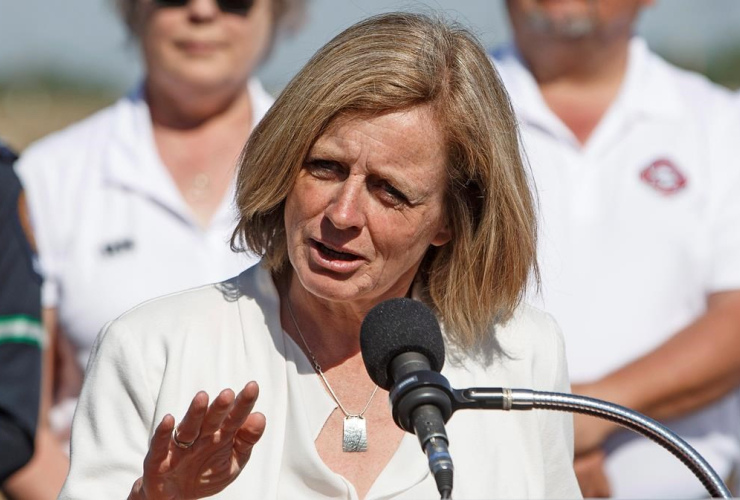Prime Minister Justin Trudeau is getting an earful from premiers about the federal government's controversial small business tax reform plan and the tight timeline for legalizing cannabis by next July.
On their way into a daylong first ministers meeting Tuesday, premiers said they intend to air their concerns about those issues.
Alberta Premier Rachel Notley said she wants more clarity from the federal government on the burden the provinces will have to bear to regulate the legalization of marijuana for recreational use.
"We are learning that there is more and more costs that are going to be incurred by provincial governments and so we need to make sure that the issue of cost neutrality to the governments that are actually doing the heavy lifting is preserved," she said.
B.C. Premier John Horgan said since there are already a number of marijuana dispensaries in his province, he thinks the retail infrastructure is already in place for the sale of the drug.
"British Columbia has, I would suggest, a mature market when it comes to cannabis and the challenge for us is going to be trying to contain the enthusiasm within the community," Horgan said.
He said what he hopes to impress upon the federal government is the importance of getting the price of pot right, so that it does not allow the black market to thrive.
He also said he is confident the existing timeline is long enough, but that he might be proven wrong as he gains more experience in government and discovers the true pace at which things can develop.
Prince Edward Island Premier Wade MacLauchlan noted that pot legalization involves public health, education and enforcement issues.
"We all have to realize this is a complex issue. It's not just a matter of passing a law."
Business tax slammed
On the contentious question of proposed Liberal tax reforms, MacLauchlan said he's never seen a business tax issue attract so much "engagement."
The proposals have been slammed by large and small business groups, doctors, accountants, lawyers, farmers, shop owners and even some of Trudeau's Liberal backbenchers.
MacLauchlan said his province has particular concerns that the proposed changes will impede the ability of farmers and fishers to pass on their businesses to their children. He said he'll ask for "proper consideration" of their concerns, including prolonging consultations, which ended Monday.
Horgan also hinted that more time is needed for consultations.
"We've certainly been hearing from people in British Columbia," he said. "They're concerned with the lack of consultation, kind of out of the blue on a major piece of tax reform."
Both Horgan and Notley said the plan must strike a balance between making sure the wealthy pay their fair share and avoiding undue harm to small businesses.
Notley said she wants to ensure the government works to protect such businesses from "unintended consequences that would detract from the work that they do, particularly in Alberta as we are emerging from a recession."
"We know that the work of small businesses is fundamental to that success."
Federal Finance Minister Bill Morneau is to brief the premiers on his proposed changes, which he maintains are aimed at ensuring the wealthiest Canadians can't use incorporation of small businesses to avoid paying their fair share of taxes.
The proposals include prohibiting income sprinkling to family members who do no work for the business, limiting the ability to make passive investments in things unrelated to the business and restricting the ability to convert income to capital gains, which is taxed at a lower rate.
For his part, Trudeau opened the meeting noting that this is the fourth time he's met the premiers since becoming prime minister two years ago.
"It's really important to me and I think it's important to Canadians that they see our leadership regularly sitting down to talk with each other about issues where we are working together, about issues that are challenges," he said.
Trudeau also expressed support for Notley as she deals with the fallout from a weekend attack in Edmonton, promising to work with her to ensure "we stay true to the values of openness while keeping our communities safe."
During the morning session, Trudeau and the premiers spent about 90 minutes with Indigenous leaders. While they were generally pleased to have an opportunity to air their particular concerns, the Indigenous leaders said they'll continue to push for full inclusion in first ministers' summits.
"There are still these historical barriers for Indigenous inclusion within multilateral conversations in this country," said Natan Obed, of the Inuit Tapiriit Kanatami, adding that sometimes provincial and territorial governments "don't want to give up power" to Indigenous Peoples.
"Nothing but just words"
Isadore Day, Ontario regional chief for the Assembly of First Nations, dismissed the first ministers' summit as "nothing but just words."
"We were shuffled out of the room again."
When the issue of aboriginal self-government came up during the meeting, Day said Quebec Premier Philippe Couillard warned that his province's long-standing constitutional demands must be dealt with first.
"He pulled the constitutional card," Day said, accusing Couillard of holding First Nations in Quebec "hostage."
Perry Bellegarde, national chief of the Assembly of First Nations, said he'll continue pushing for more first ministers meetings with Indigenous leaders. In the meantime, he said he advised premiers Tuesday that "if you want to grow Canada's economy ... you have to involve First Nations people every step of the way."
Investing in the untapped potential of young Indigenous people is critical to addressing Canada's skilled labour shortage and aging population and respecting aboriginal jurisdiction over their land is crucial to the development of natural resources, he said.
— With files from Sidhartha Banerjee in Montreal, Allison Jones in Toronto and Jennifer Graham in Regina.





Comments